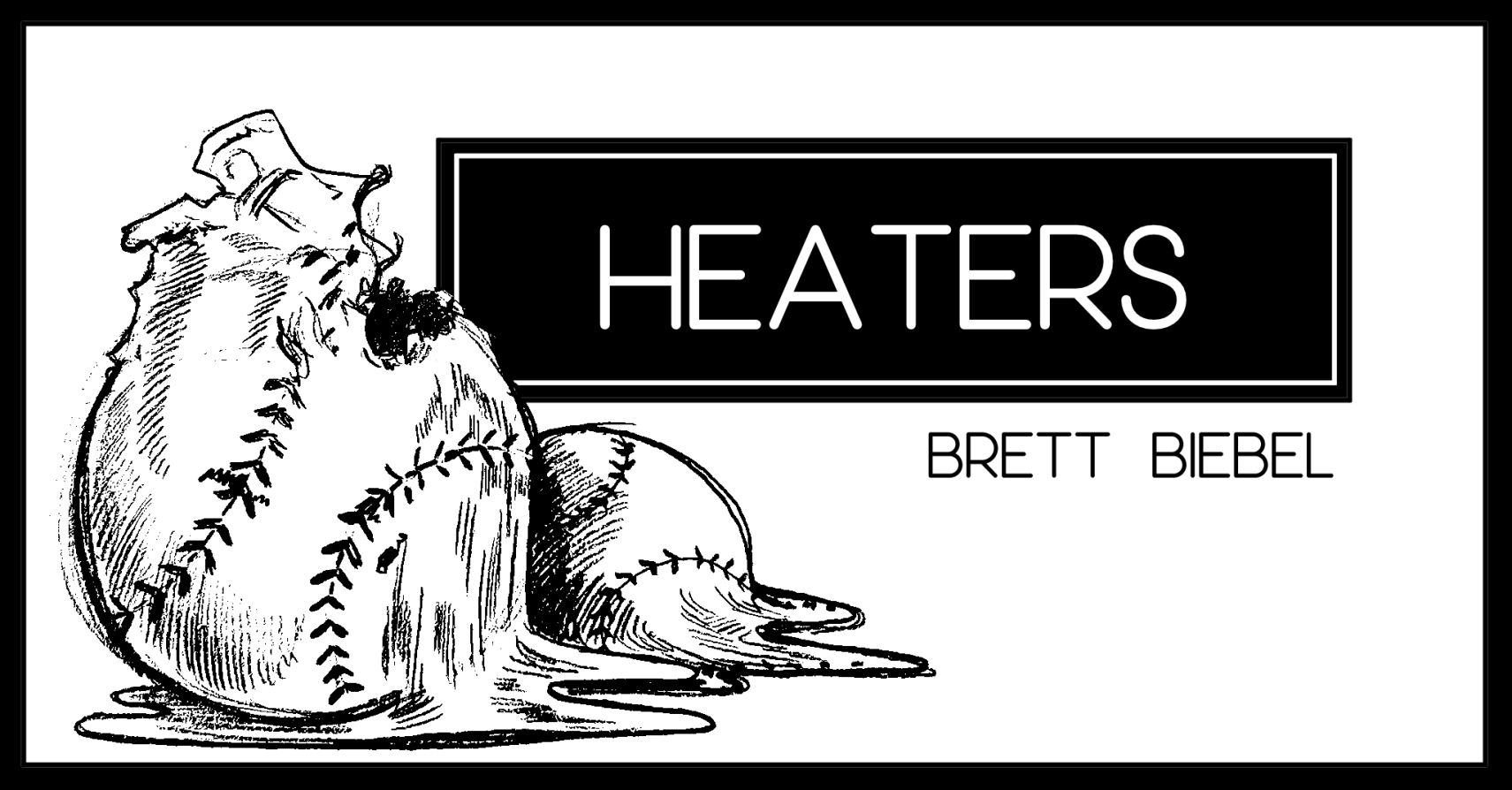Our econ professor loved to tell this baseball story, and he swore it was true. Nobody could find any documentation. It seemed more like a thought exercise or parable or something, but the idea was there’s this top prospect. He’s a pitcher. Throws serious gas with a nasty breaking ball, and he gets a taste of the big leagues in some early-nineties September but is poised to start the next season at Triple A. He’s impatient. He’s maybe got a big head. He thinks, “Well, what the fuck am I gonna do in Columbus or Des Moines or whatever,” and he wants the major-league paycheck. He wants the glamor. He wants something like serious cult status, and they say he loved movies about the fifties. Anything with scenes of drag racing or games of chicken, and so he decides to call his agent. Head out to a ballfield somewhere deep down in Illinois. Practically Kentucky. It’s November but warm, and you can picture foliage if you want. The Garden of the Gods. This pitcher, he just starts throwing. Over and over. There’s no catcher. Every pitch just smashes against a rusted fence, and sometimes one of them even tears right through. He’s cracking jokes about what’ll crumble first, the metal or his shoulder. It all sounds like a waiter dropping a plate of dishes, and this is what the team hears in the background. They’re on a call with the guy’s agent, who’s got one of those pathetic, boxy car phones and is relaying a set of demands. Long-term contract. Fifty million minimum. Full no-trade clause and serious playoff and World Series incentives or else my guy here blows out his whole fucking future, and every so often some assistant to the GM swears he can hear this pitcher laughing. Cackling. Could be static. Could be the fence. Point is, our professor said, “This is your final exam. Game it out. Both parties, tell me what’s the best thing they could possibly do.”
I never cared about the answer. I probably should have failed the class. Brianna knew, I bet, but she never told me, and I guess we were both more drawn to the significance of the scenario. The moment of possibility. The way it must have felt out there with nobody watching. No chance of going viral. Just you and tendons and ligaments and bats swirling above your potential, and senior year, we drove almost 400 miles. We found the field. A field, anyway. This place outside Carbondale, and it was Thanksgiving Break. We’d ditched our families. We sat on the pitcher’s mound. “A woman would never do that,” Brianna said. There was a fence, and there were holes in it, and she looked like a lizard sometimes, a shitload of speed coiled inside some slender frame.
I nodded.
“Explain it to me,” she said. “Explain competition and destruction and the beauty of exploded talent.”
I couldn’t. I didn’t. Though, “I like that phrase,” I said. “‘Exploded talent,’” and she put her foot on top of mine. The grass was starting to get wet. We got ourselves a room at the Super 8, and there was no pool. The previous guest must have had a dog. There was hair still in the corner, and it smelled like chemical tobacco, and we didn’t have sex. We watched other people doing it on HBO. They were using fruit in interesting ways. I thought about how maybe she wanted to. How I definitely did but was trying not to think about it, trying not to let it cloud out every other nice little thing. Instead, I pictured the pitcher. The control. The big set of iron balls waving around in the middle of nowhere, and there wasn’t anything rational about my admiration. It was just something you felt, some imaginary number that was there to be worked with even though it wasn’t technically real, and this is what I should have said to Brianna. Our professor, he never told us what happened to the guy. The pitcher. He didn’t become a star, that much was clear. Maybe that made him a failure. Maybe not chasing stardom was precisely the point. I bet we both dreamt about it. I bet we had visions, sleeping on opposite sides of the bed. At the free breakfast, I tried to be All-American Romantic. I said, “We could commit career suicide together. Some day. Twenty years hence.”
She was staring at the television. It was tuned to CNN. “Better that than one of those marriage pacts,” she said, and we shook on it. We shook on it while I had my mouth full of Frosted Flakes I can still taste, on Sundays or late at night, but I never kept up my end, and who the hell knows about her. Some people you lose touch with. Some people you ask yourself about but never tell anyone else, and relationships are hotel rooms, aren’t they? Inside, things happen you can’t prove. Things happen that leave almost no physical trace.

